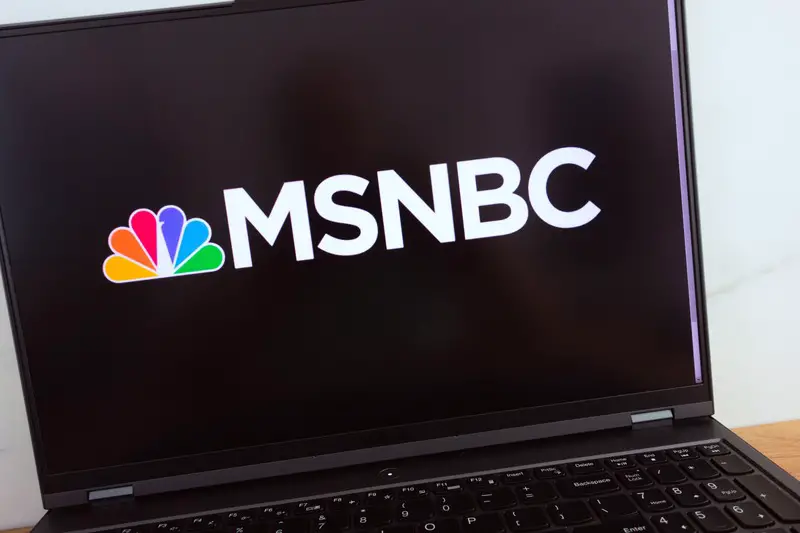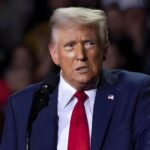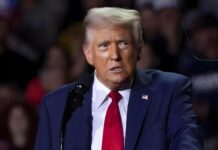President Donald Trump unleashed a social media tirade on Tuesday, November 4, 2025, after MSNBC’s “Morning Joe” mocked him on air, revealing the 79-year-old commander-in-chief’s persistent fixation on cable news coverage and his ongoing sensitivity to media criticism.
The presidential outburst came after New York mayoral candidate Zohran Mamdani appeared on the morning show ahead of Tuesday’s elections. Host Joe Scarborough introduced the guest with a pointed jab, quipping that “the communist joins us now,” echoing Trump’s frequent attacks against the democratic socialist candidate. Mamdani swiftly corrected the characterization, noting that while Trump repeatedly calls him a communist, his actual political ideology is democratic socialism.
The program also devoted airtime to discussing former Vice President Dick Cheney’s death, praising him as a Republican who maintained his principles during Trump’s political rise. Scarborough described Cheney as someone who “kept his bearings” after January 6 and defended democratic norms when many other party members “lost their way.” Co-host Willie Geist highlighted that one of Cheney’s final public acts was announcing his intention to vote for Kamala Harris in the presidential election, stating that Trump “can never be trusted with power again.”
Hours after the broadcast, Trump took to Truth Social to vent his frustration. He posted a message declaring that Scarborough’s television ratings have gone “down the tubes,” along with the rest of MSNBC, calling it “a beautiful thing to watch.” The post exemplified Trump’s characteristic pattern of attacking media outlets through claims about their viewership numbers while simultaneously revealing his close monitoring of cable news programming.
The Tuesday meltdown represented the latest chapter in Trump’s long-running feud with Scarborough and co-host Mika Brzezinski, despite the couple’s previous attempts to reconcile with the president through a visit to Mar-a-Lago. The incident demonstrated how deeply “Morning Joe” continues to provoke Trump’s ire, even as he occupies the nation’s highest office.
Trump’s anger extended beyond the morning show hosts to Mamdani himself, whom the president has repeatedly targeted since the 34-year-old announced his mayoral campaign. At a White House dinner with tech CEOs in September, Trump told reporters he opposed seeing “a communist become mayor” of New York. The president has maintained this rhetorical assault despite Mamdani’s consistent clarification of his democratic socialist beliefs.
On the same Tuesday, Trump escalated his attacks on Mamdani with inflammatory language targeting Jewish voters. In a Truth Social post, the president called Mamdani a “Jew hater” and declared that any Jewish person voting for him would be “stupid.” Trump wrote: “Any Jewish person that votes for Zohran Mamdani, a proven and self professed JEW HATER, is a stupid person!!!”
The outburst fits a broader pattern of Trump’s behavior during his second term, characterized by frequent emotional reactions to perceived slights and sustained attention to how he is portrayed in the media. Similar incidents have occurred with other news outlets and public figures throughout recent months, including confrontations with CNN’s Kaitlan Collins over questions about cryptocurrency pardons and complaints about unflattering photographs published by Time magazine.
The president’s reaction to Australian Ambassador Kevin Rudd during a White House meeting demonstrated comparable sensitivity when he learned of past critical comments. Trump told Rudd directly, “I don’t like you either, and I probably never will,” after discovering the diplomat had previously called him “the most destructive president in history” and a “village idiot.” When triggered by the mere mention of Democratic Representative Jasmine Crockett’s name, Trump interrupted a reporter mid-question to attack the congresswoman’s intelligence, calling her “a very low IQ person.”
These episodes reveal a president who dedicates considerable time and energy to monitoring media coverage and responding to criticism, even when such attention might seem beneath the office. Trump’s preoccupation with television ratings, unflattering photographs, and negative commentary from political opponents has become a defining characteristic of his public persona. The Tuesday morning incident with MSNBC underscored how cable news programming continues to influence the president’s emotional state and public communications.
The clash between Trump and Morning Joe also highlighted the complex relationship between media figures and political power. Despite Scarborough and Brzezinski’s previous overtures toward Trump, including their controversial Mar-a-Lago visit, the hosts have maintained their willingness to criticize and mock the president. Their commemoration of Dick Cheney as a Republican who opposed Trump served as a pointed reminder of establishment conservatives who rejected the president’s influence over their party.
As Election Day voting proceeded across the country on Tuesday, Trump divided his attention between the electoral process and settling scores with media personalities and political candidates who had drawn his ire. The president’s social media activity demonstrated his continued prioritization of personal grievances alongside official duties, a pattern that has persisted throughout his time in office.









